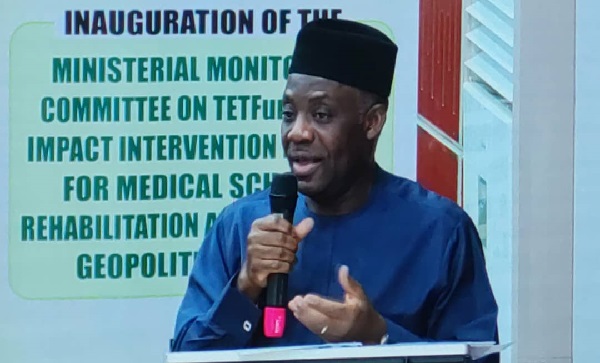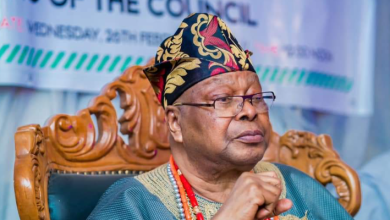18 Varsities Listed For TETFund’s N110b Projects

The training of medical students in public universities in the country is soon to enter a new phase.
Reason: The Federal Government yesterday announced a N110 billion investment to enhance the study of Medicine, Dentistry, Pharmacy and Nursing in 18 universities.
The institutions whose medical schools are listed as beneficiaries by the Tertiary Education Trust Fund (TETFund) are University of Lagos, University of Ibadan, University of Benin, Ahmadu Bello University in Zaria, University of Medical Sciences in Ondo, Nnamdi Azikiwe University in Awka, Bayelsa State University, and Imo State University, Owerri.
Others are Benue State University, Makurdi; Umar Musa Yar’Adua University, Katsina; University of Nigeria, Nsukka; University of Calabar; Abubakar Tafawa Balewa University, Bauchi; University of Jos; University of Ilorin; University of Maiduguri; Uthman Danfodio University in Sokoto; and Gombe State University.
All the listed tertiary institutions of learning are to receive approximately N4 billion, including N750 million meant for hostel construction.
Education Minister Tunji Alausa made this known while inaugurating the ministerial committee on TETFund High Impact Intervention Project for Medical Schools’ Rehabilitation across the six geo-political zones in Abuja yesterday.
Alausa said the investment, which will run for five years consecutively, would hit N1.5 trillion after five years.
“Today (yesterday), we are deploying over 100 billion in our medical institutions across the country. This N110 billion includes N70 billion on rehabilitation of our medical institutions,’’ he stated.
The minister said the investment would lead to a massive increase in enrolment for the four medical science programmes.
“With the investment now, in five years we would have invested N1.5 trillion in our medical education,” Alausa said, adding that the move would also see the establishment of eight simulation laboratories across the six zones.
While expressing the commitment of President Bola Tinubu to improving medical education and healthcare delivery in the country, the minister described the TETFund High Impact Intervention Project as a direct response to the need to upgrade and expand the facilities in medical schools.
Minister of State for Education, Prof. Suwaiba Ahmad, said the initiative would lead to the production of medical doctors in the country and end education tourism in medical sciences.
She added: “TETFund High Impact Intervention Project for Medical Schools Rehabilitation is one of the government’s key initiatives to foster excellence in medical education, enhance the quality of healthcare training, and equip our future doctors and healthcare professionals with the skills and facilities necessary to meet the demands of an ever-evolving medical landscape.
“The government, through the intervention of TETFund, has demonstrated its unwavering commitment to improving these facilities. This initiative seeks to rehabilitate and upgrade medical schools across the country, ensuring that the next generation of healthcare professionals is trained in state-of-the-art environments that reflect global best practices.”
Executive Secretary of TETFund, Sonny Echono, said the committee was conceived as part of the minister’s initiative to enhance the education system, specifically medical schools, by utilising the TETFund High Impact Intervention Projects efficiently and effectively to address critical national needs in the health sector.
He said: “This has been designed to improve infrastructure in medical schools, through the rehabilitation of lecture theatres and laboratory facilities thereby enhancing capacity to take-in and produce more Doctors, Nurses, Dentists and Pharmacists for the nation.”
Echono called on the members of the committee to give their best in ensuring the success of the initiative.
The 12-man committee is chaired by Prof. Suleiman Alabi of the Association of Provosts of Colleges of Medicine.
Its terms of reference include ensuring adherence to project goals, monitoring the proper use of funds, and maintaining detailed records.
The committee was also charged to ensure that the funds allocated for the rehabilitation of medical schools were judiciously used.




